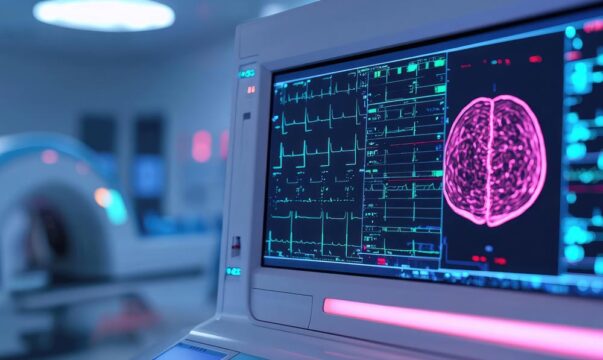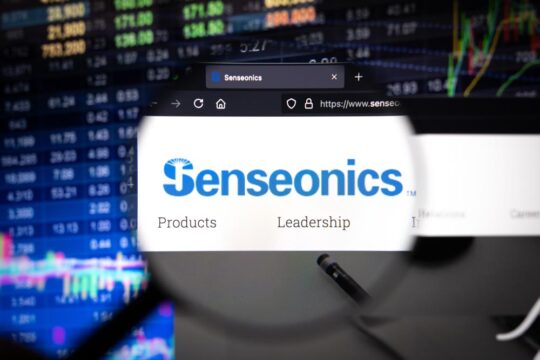Advertisment
Mixed results for new NHL therapies
Professor Stephen Ansell (Mayo Clinic, USA) speaks about harnessing the power of immunotherapy in Non Hodgkin’s Lymphoma.
Articles by Thomas R Collins. Interviews by Esther Drain.
Trying to usher new immunotherapies into the setting of non-Hodgkin lymphomas (NHL) has been met with mixed results, and the field still faces challenges in trying to match the right patients with the right immunotherapy — or the right combination of them, said Stephen Ansell, MD, PhD, professor of hematology at Mayo Clinic.
In the hope of building on the success of checkpoint inhibitors in Hodgkin lymphoma in preventing immune exhaustion, researchers have been making forays into other forms of lymphoma. Some recent results, in studies that are still small, have been promising — such as the checkpoint-inhibitor pembrolizumab producing responses in 5 of 7 relapsed/refractory N-K/T-cell lymphoma patients, Professor Ansell said.1
But in other studies, the results have been not as encouraging. In a study submitted to Blood involving 23 indolent lymphoma patients receiving pembrolizumab, just 2 of the 18 follicular lymphoma patients had a response.
Another strategy, to elicit more activity from the immune system, has had mixed results as well. A study of varlilumab, an anti-CD27 antibody, was used to treat a variety of lymphoma patients, and produced anti-lymphoma activity in only one — a Hodgkin lymphoma patient.
An anti-CD40 therapy, dacetuzumab, in recurrent non-Hodgkin lymphoma, saw a decrease in tumor size in about a third of the patients.
“The results are still quite variable and we have work to do to understand who benefits and who does not,” Professor Ansell said.
Researchers have been pursuing combination approaches — including not one but two checkpoint inhibitors. A small study of nivolumab and pembrolizumab in B-cell non-Hodgkin lymphomas found that just 3 of the 15 patients had even a partial response.
But combining a checkpoint inhibitor with the anti-CD20 rituximab has produced an 80% overall response rate in the 15 relapsed follicular lymphoma patients assessed in an interim analysis.2
“Multiple new agents are in development to block immune suppression or induce immune stimulation,” Prof. Ansell said. “Incorporating promising immunologic agents into combination approach is the current clinical challenge.”
Adoptive T cell therapy — the star, so far, being chimeric antigen receptor (CAR) therapy — continues to evolve as well, said Catherine Bollard, MD, director of the Center for Cancer and Immunology Research at Children’s National Health System. Hurdles still remain with regard to toxicity, manufacturing, cost and regulatory barriers that make CAR such a challenge, regardless of how tantalizing the results, she said.
Also, she said, “it still remains unclear what are the attributes of these CAR T cells that are important for potency.”
Antigen-specific therapy targeting Epstein-Barr virus-specific T cells, which might prove to be less toxic, have been promising at many centers, she said.
“We have over a hundred patients that have received EBV T cells for post-transplant lymphoproliferative disease, with remarkably little graft-versus-host disease and cytokine release syndrome, and a pretty impressive success rate of about 90%, all of which are durable,” she said.
“Nevertheless,” she added, “the T cell therapy field is always going to struggle with the fact that it’s not off-the-shelf like an antibody.”
Banks derived from healthy controls are coming into more common use, and, have been shown to successfully match banked samples with patients. Third-party, virus-specific T cells have shown complete and partial response rates between 50 and 100%, she said.
“I really wouldn’t want anyone to take away from this talk that these sorts of therapy should be given in isolation,” she said. “I think with this sort of vision to reduce your disease burden with some sorts of modalities that may be considered more off-the-shelf, then coming in with your cell therapy strategy, we can ultimately effect a cure for these patients.”
References
- Kwong YL1, Chan TSY1, Tan D, et al. PD1 blockade with pembrolizumab is highly effective in relapsed or refractory NK/T-cell lymphoma failing l-asparaginase. Blood. 2017 Apr 27;129(17):2437-2442.
- Nastoupil LJ, Westin J, Fowler N, at al. High response rates with pembrolizumab in combination with rituximab in patients with relapsed follicular lymphoma: interim results of an on open-label, phase II study. Hematological Oncology, 35(S2): 120-121.





